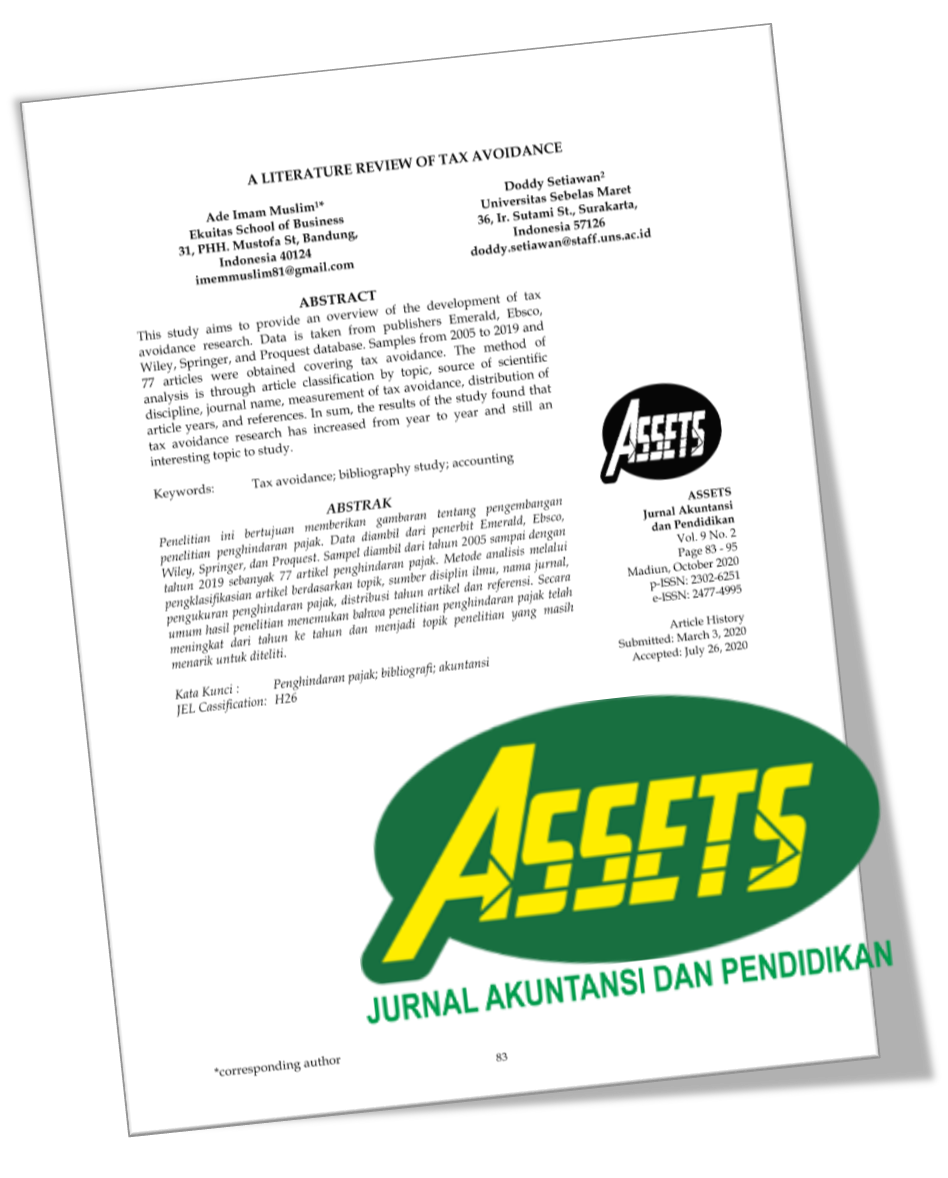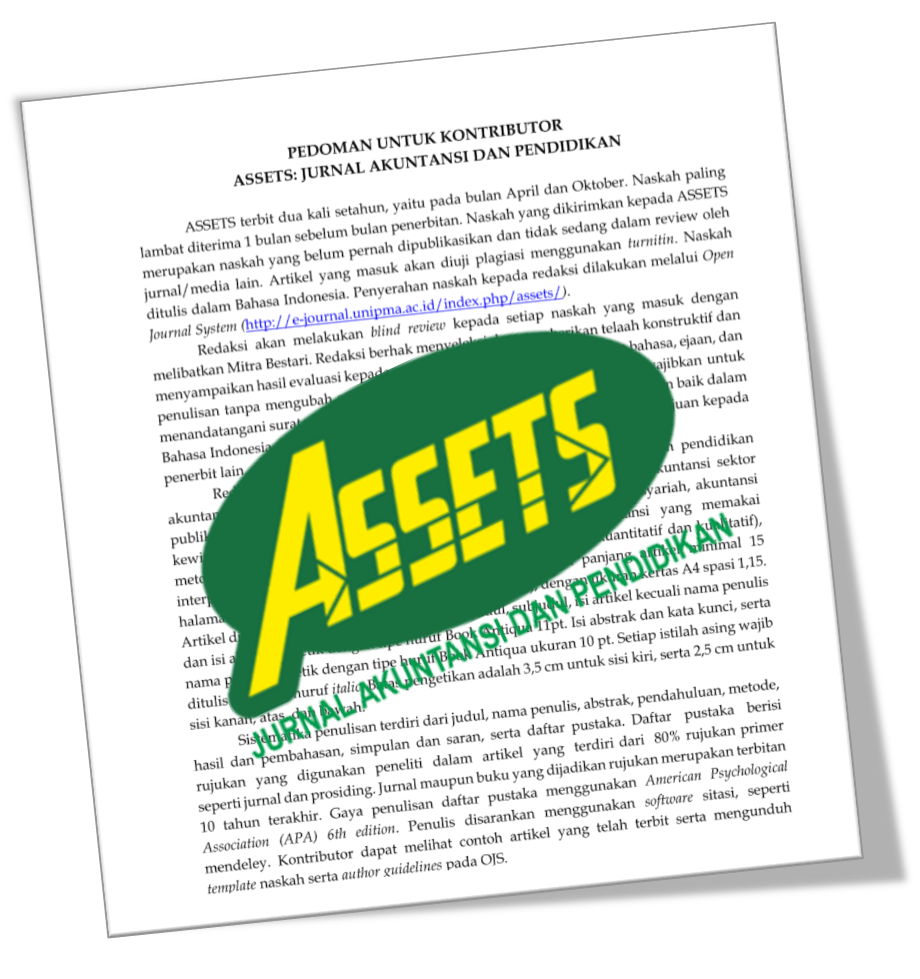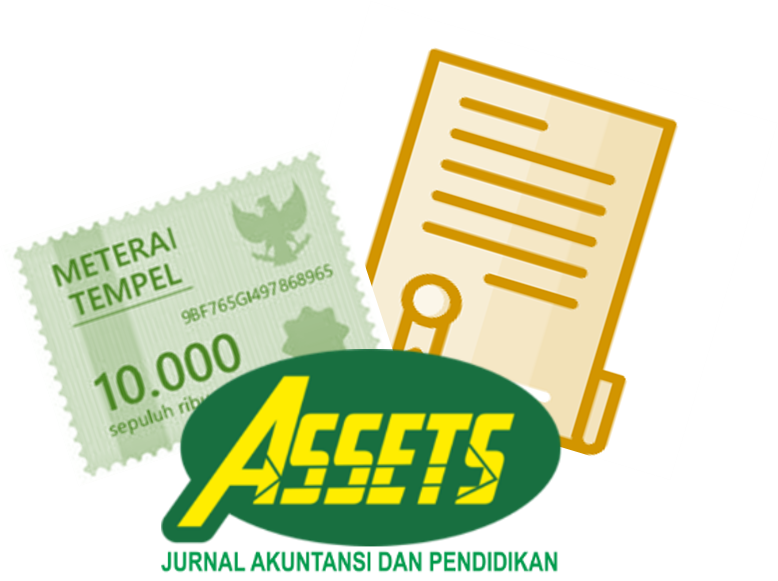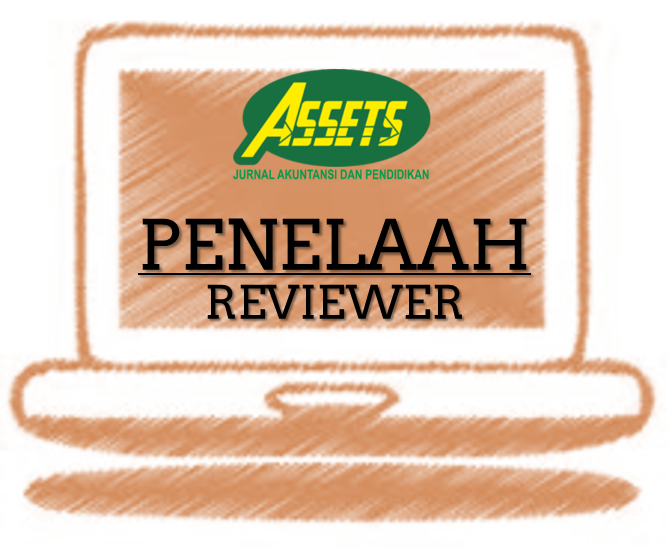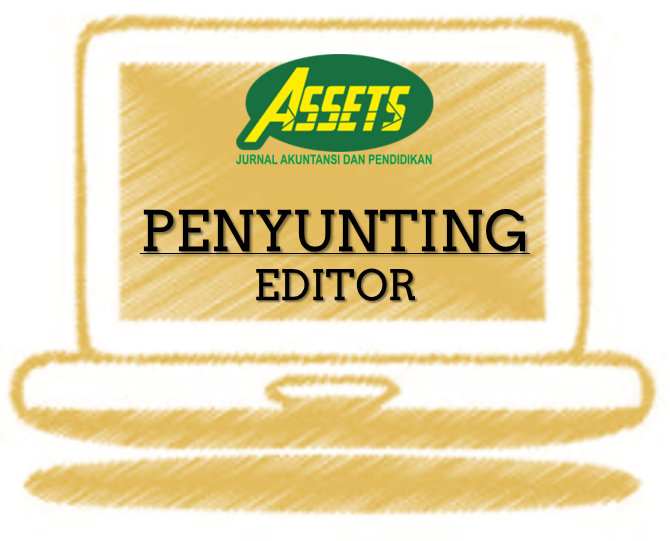THE PROBLEM WITH COMPUTER ACCOUNTING ONLINE LEARNING FOR STUDENTS OF SMKN 2 KOTA MADIUN
DOI:
https://doi.org/10.25273/jap.v11i2.13517Keywords:
Motivation, Activity, Facility, Understanding, Motivasi, Keaktifan, Fasilitas, PemahamanAbstract
ABSTRACT
Online learning is distance learning between students and teachers using laptop/computer/mobile devices and internet networks. Distance learning cannot be separated from the problems faced by students starting from learning facilities, motivation, and learning activities. It will have an impact on students' understanding of accounting computer materials. This study aimed to analyze the problem of online learning regarding motivation, activity, and student learning facilities toward understanding computer accounting learning materials. This research method uses ex post facto primary data using questionnaires distributed to vocational students. The data analysis technique uses SEM analysis with the SmartPLS tool. The results of this study indicate that students' motivation, activity, and facilities significantly positively affect their understanding of learning materials during online learning.
ABSTRAK
Pembelajaran daring merupakan pembelajaran jarak jauh antara siswa dan guru menggunakan peralatan laptop/komputer/handphone dan jaringan internet. Pembelajaran jarak jauh tidak lepas dari permasalahan-permasalahan yang dihadapi oleh siswa mulai fasilitas belajar, motivasi dan keaktifan belajar. Hal ini akan berdampak terhadap pemahaman siswa terhadap materi komputer akuntansi. Tujuan penelitian ini untuk menganalisis problem pembelajaraan daring ditinjau dari motivasi, keaktifan dan fasilitas belajar siswa terhadap pemahaman materi pembelajaran Komputer Akuntansi. Metode penelitian ini menggunakan penelitian ex post facto data primer dengan menggunakan kuesioner yang disebarkan kepada siswa SMK. Teknik analisis data menggunakan analisis SEM dengan alat SmartPLS. Hasil penelitian ini menunjukkan bahwa motivasi, keaktifan dan fasilitas siswa berpengaruh positif signifikan terhadap pemahaman materi pembelajaran selama pembelajaran daring.
Downloads
References
Abdulwahab, S., Jaradat, N., Abdulrahman, I., & Faisal, B. (2021). Teaching Accounting Courses Via Distance Learning from The Point of View of Accounting Instructors During the Covid-19 Pandemic. 20(6), 1711–1728. https://doi.org/10.17051/ilkonline.2021.06.166
Achdiyat, M. (2016). Prestasi belajar matematika ditinjau dari kepercayaan diri dan keaktifan siswa di kelas. Jurnal Formatif, 6(1), 50–61.
Adam, I. & Hasbullah (2019) Pengaruh Motivasi Berprestasi dan Prokrastinasi Akademik terhadap Pemahaman Konsep Matematika. Alfarisi: Jurnal Pendidikan MIPA. 2 (1), 24-35
Agustina, D., Matra, S. D., & Karimah, S. (2020). Challenges Of Having Online Learning Activities: University Students’ Perspectives. August, 9–14.
Antonietti, C., Schmitz, M., Consoli, T., Cattanieo, A., Gonon, P. & Petko D. (2022) Development and validation of the ICAP Technology Scale to Measure How Teachers Integrate Technology into Learning Activities. Computer & Education (Elsevier). 192. 1-14
Arkorful, V., & Abaidoo, N. (2014). The role of e-learning, the advantages and disadvantages of its adoption in Higher Education. Internasional Journal of Education and Research, 2(12), 397–410.
Asriyah, N. (2014). Artikel Penggunaan Model Mnemonik Dengan Media Lcd Proyektor Untuk Meningkatkan Keaktifan Dan Hasil Belajar Ips Kelas V Semester Ii Sd Negeri 2 Bandungrejo Kalinyamatan Tahun 2013 – 2014. 78–92.
Astutik, S. M. (2014). Pengaruh Self Regulated Learning dan Ketersediaan Fasilitas Belajar Terhadap Hasil Belajar Siswa Pada Mata Pelajaran Otomatisasi Perkantoran. Jurnal Pendidikan Bisnis Dan Manajemen, 2(1), 50–57.
Coman, C., Țîru, L. G., Meseșan-Schmitz, L., Stanciu, C., & Bularca, M. C. (2020). Online teaching and learning in higher education during the coronavirus pandemic: Students’ perspective. Sustainability (Switzerland), 12(24), 1–22. https://doi.org/10.3390/su122410367
da Costa, A., Belo, R. F., Moreira, I. X., & ... (2020). the Effect of Student Motivation and Participation on the Achievement of Accounting Learning in Class Iii Social Science …. ISCE: Journal of …, 4(2), 146–159.
El-Sayed Ebaid, I. (2020). Accounting Students’ Perceptions on E-Learning During the Covid- 19 Pandemic: Preliminary Evidence from Saudi Arabia. Journal of Management and Business Education, 3(3), 236–249. https://doi.org/10.35564/jmbe.2020.0015
Emilia, J., Ismanto. B., & Luhsasi, D. I. (2021) Evaluasi Implementasi Pembelajaran Daring pada Pembelajaran Akuntansi Perusahaan Dagang di Masa Pandemi Covid-19. Jurnal Kependidikan. 7 (3), 663-671.
Firawati, I. (IKIP S., & Hidayat, W. (IKIP S. (2018). Hubungan Antara Keaktifan Belajar Siswa Terhadap Kemampuan Komunikasi Matematis Siswa Smk. Jurnal Visipena, 9(1), 151–158.
Gustiani, S. (2020). Students ’Motivation in Online Learning During Covid-19 Pandemic Era: A Case Study. 12(2), 23–40.
Ghozali, I. (2021). Partial Least Squares: Konsep, Teknik dan Aplikasi Menggunakan Program SmartPLS 3.2.9 Untuk Penelitian Empiris. Yogyakarta: Universitas Diponegoro.
Habsyi, F. Y. (2020). Pengaruh Fasilitas Belajar Terhadap Prestasi Belajar Siswa Sma Nusantara Taurono Title. JUPEK: Jurnal Pendidikan Dan Ekonomi, 2(1), 13–22.
Handoyo, S., & Anas, S. (2019). Accounting Education Challenges in the New Millennium Era: Impact of Advanced of Technology and Dynamic Business Environment. Journal of Accounting Auditing and Business, 2(1), 25. https://doi.org/10.24198/jaab.v2i1.20429
Hasbolah, F., Nor, F. M., Kamarudzaman, F. N., & Omar, S. A. (2020). Learning Accounting Courses on Digital Platforms: How Do Non-Accounting Students Accept? International Journal of Academic Research in Business and Social Sciences, 10(8), 318–332. https://doi.org/10.6007/ijarbss/v10-i8/7541
Kuntarto, E. (2017). Keefektifan Model Pembelajaran Daring Dalam Perkuliahan Bahasa Indonesia di Perguruan tinggi. Journal Indonesian Language Education and Literature, 3(1), 53–65.
Meade, J. A., & Parthasarathy, K. (2020). Did COVID-19 Impact Student Learning in an Introductory Accounting Course? Business Education Innovation Journal, 12(2), 18–23. www.beijournal.com
Napitupulu, B., Ratna, D., & Munthe, S. (2019). Pengaruh Fasilitas Belajar Dan Minat Belajar Terhadap Hasil Belajar Siswa Pada Mata Pelajaran Kearsipan Di Di Smk Swasta Jambi Medan T.A 2018/2019. Jurnal Administrasi Dan Perkantoran Modern, 8(3), 1–6.
Nguyen, T. (2015). The Effectiveness of Online Learning: Beyond No Significant Difference and Future Horizons. MERLOT Journal of Online Learning and Teaching, 11(2), 309–319.
Oktavian, R., & Aldya, R. F. (2020). Efektivitas Pembelajaran Daring Terintegrasi di Era Pendidikan 4.0. Didaktis: Jurnal Pendidikan Dan Ilmu Pengetahuan, 20(2), 129–135. https://doi.org/10.30651/didaktis.v20i2.4763
Park, Y. H., Paik, T. Y., & Koo, J. H. (2019). Effect of student activity participation on accounting education. Journal of Open Innovation: Technology, Market, and Complexity, 5(3), 1–11. https://doi.org/10.3390/JOITMC5030040
Rosali, S. R. (Universitas S. (2020). Aktifitas Pembelajaran Daring Pada Masa Pandemi Covid -19 Di Jurusan Pendidikan Geografi Universitas Siliwangi Tasikmalaya. GEOSEE: Geography Science Education Explored Journal, 1(1), 21–30.
Sari, E. D., Tripermata, L., & Sayadi, M. H. (2022). Effects of Students Perception and Motivation on Online Accounting Learning During the Covid-19 Pandemic: Empirical Evidence of Accounting Students in Indo Global Mandiri University. International Journal of Community Service & Engagement, 3(1), 9–17. https://doi.org/10.47747/ijcse.v3i1.650
Septialamsyah, M. A. L. (UNIKAL). (2014). Pengaruh Kecemasan Dan Keaktifan Belajar Siswa Terhadap Kemampuan Pemahaman Konsep Melalui Model Pembelajaran Resource Based Learning Materi Prisma Dan Limas Kelas Viii Smp Negeri 2 Wiradesa. SELTA, 2(2), 57–67.
Sun, A., & Chen, X. (2016). Online education and its effective practice: A research review. Journal of Information Technology Education: Research, 15(2016), 157–190. https://doi.org/10.28945/3502
Swain, R. K., & Sahoo, M. (2020). Accounting Education in Virtual Environment. Indian Journal of Accounting (Ija), 52(January). https://www.researchgate.net/publication/344217761_Accounting_Education_In_Virtual_Environment
Yandra, F. P., Alsolami, B., Sopacua, I. O., & Prajogo, W. (2021). The role of community of inquiry and self-efficacy on accounting students’ satisfaction in online learning environment. Jurnal Siasat Bisnis, 25(1), 1–16. https://doi.org/10.20885/jsb.vol25.iss1.art1
Yulia, H. (2020). Online Learning to Prevent the Spread of Pandemic Corona Virus in Indonesia. ETERNAL (English Teaching Journal), 11(1), 48–56.
Zuleni, E. & Marfilinda R. (2022) Pengaruh Motivasi Terhadap Pemahaman Konsep Ilmu Pengetahuan Alam Siswa. Educativo: Jurnal Pendidikan. 1 (1), 244-250.
Zhou, L., Liu, X. & Su, Y. (2021) The Differentiate Effect of Self-Efï¬cacy, Motivation, and Satisfaction on Pre-Service Teacher Students’ Learning Achievement in a Flipped Classroom: A Case of a Modern Educational Technology Course. Sustainability. 13 (5), 1-15
Downloads
Published
Issue
Section
License
Perjanjian Lisensi dan Hak Cipta
Saat mengirimkan naskah ke jurnal, penulis menyatakan bahwa:
- Mereka diberi wewenang oleh rekan penulisnya untuk masuk ke dalam perjanjian ini.
- Karya yang dimaksud belum pernah diterbitkan secara resmi sebelumnya, kecuali dalam bentuk abstrak atau sebagai bagian dari kuliah, resensi, tesis, atau overlay jurnal yang diterbitkan.
- Karya yang dimaksud tidak sedang dipertimbangkan untuk diterbitkan di tempat lain,
- Publikasi karya yang dimaksud telah disetujui oleh semua penulis dan oleh otoritas yang bertanggung jawab - secara tahu sama tahu atau eksplisit - dari lembaga tempat pekerjaan itu dilakukan.
- Mereka mengamankan hak untuk mereproduksi materi apa pun yang telah diterbitkan atau dilindungi hak cipta di tempat lain.
- Mereka menyetujui lisensi dan perjanjian hak cipta berikut.
Hak Cipta
Penulis yang menerbitkan dengan ASSETS: Jurnal Akuntansi dan Pendidikan menyetujui persyaratan berikut:
- Penulis mempertahankan hak cipta dan memberikan jurnal hak publikasi pertama dengan karya yang secara bersamaan dilisensikan di bawah Lisensi Atribusi Creative Commons (CC BY-SA 4.0) yang memungkinkan orang lain untuk berbagi karya dengan pengakuan kepenulisan karya dan publikasi awal di jurnal ini.
- Penulis dapat masuk ke dalam pengaturan kontrak tambahan yang terpisah untuk distribusi non-eksklusif dari versi jurnal yang diterbitkan dari karya tersebut (misalnya, mempostingnya ke repositori institusional atau menerbitkannya dalam sebuah buku), dengan pengakuan publikasi awalnya di jurnal ini.
- Penulis diizinkan dan didorong untuk memposting karya mereka secara daring (misalnya di repositori institusional atau di situs web mereka) sebelum dan selama proses pengiriman, karena dapat menghasilkan pertukaran yang produktif, serta kutipan lebih awal dan lebih besar dari karya yang diterbitkan.
License and Copyright Agreement
In submitting the manuscript to the journal, the authors certify that:
- Their co-authors authorize them to enter into these arrangements.
- The work described has not been formally published before, except as an abstract or part of a published lecture, review, thesis, or overlay journal.
- That it is not under consideration for publication elsewhere,
- That its publication has been approved by all the author(s) and by the responsible authorities – tacitly or explicitly – of the institutes where the work has been carried out.
- They secure the right to reproduce any material already published or copyrighted elsewhere.
- They agree to the following license and copyright agreement.
Copyright
Authors who publish with ASSETS: Jurnal Akuntansi dan Pendidikan agree to the following terms:
- Authors retain copyright and grant the journal right of first publication with the work simultaneously licensed under a Creative Commons Attribution License (CC BY-SA 4.0) that allows others to share the work with an acknowledgment of the work's authorship and initial publication in this journal.
- Authors can enter into separate, additional contractual arrangements for the non-exclusive distribution of the journal's published version of the work (e.g., post it to an institutional repository or publish it in a book), with an acknowledgment of its initial publication in this journal.
- Authors are permitted and encouraged to post their work online (e.g., in institutional repositories or on their website) before and during submission, as it can lead to productive exchanges and earlier and more extraordinary citations of published work.

ASSETS: Jurnal Akuntansi dan Pendidikan is licensed under a Creative Commons Attribution-ShareAlike 4.0 International License.


